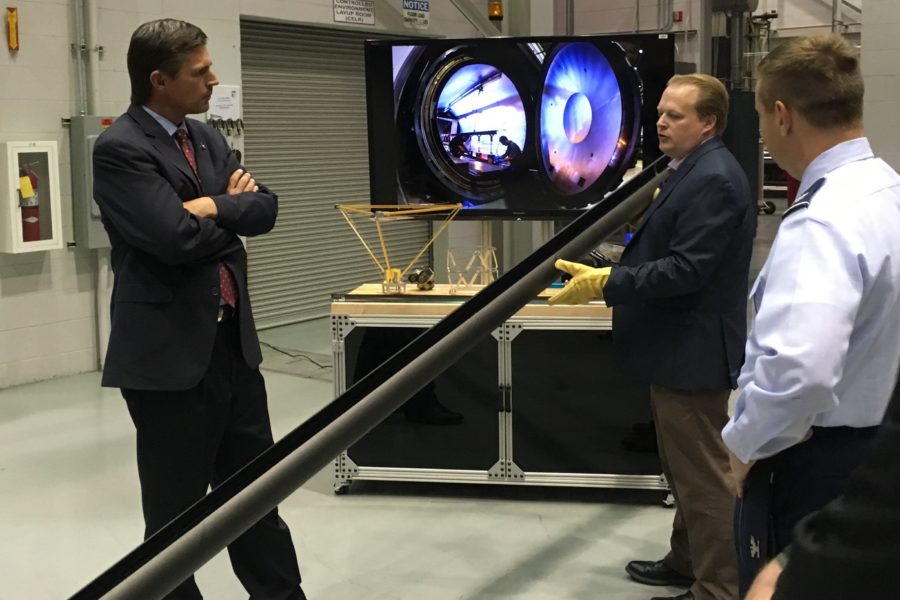The Air Force Research Laboratory has named the new senior official who will represent the interests of the lab’s Space Force customers and be a single USSF point of contact within the AFRL leadership.
Andrew Williams, an 18-year veteran of AFRL’s Space Vehicles Directorate, will be the first full-time permanent deputy technology executive officer (D-TEO) for space science and technology, the lab said in a press release Nov 1.
The appointment means the changes the lab laid out last year to make it more responsive and useful to its new Space Force customers are finally complete.
Williams’ new role “will ensure integrated development and execution of Space S&T efforts across AFRL and serve as the primary focal point for AFRL integrated Space [science and technology] activities,” the announcement states. As previously reported, the role is that of a “conductor”—ensuring that all of the lab’s directorates, not just the four centered on space, are focused on the needs of the new service as the directorates plan and execute their research activities.
The appointment was welcomed by Joel Mozer, chief scientist for Space Operations Command and whose job it is to tell AFRL what the new service needs for its operations. “Great choice,” he told Air Force Magazine by email. He said Williams would be “excellent” in the role because “he has the background and experience to cover the broad AFRL space portfolio.”
“Dr. Williams is exceptionally well-qualified, experienced, and a respected leader within AFRL, the USSF, and our Science and Technology stakeholders,” said AFRL Commander Maj. Gen. Heather L. Pringle in the release.
Williams takes the post from Kelly Hammett, the head of the lab’s Directed Energy Directorate, who has been dual-hatted in the new role on an interim basis since September 2020. In that post, Hammett headed a working group that drew up the plans to serve the new Space Force by realigning the lab’s governance, rather than reorganizing or restructuring it to break off the space-related parts of the institution.
The new permanent D-TEO position is just one of a series of changes the AFRL leadership has made to ensure the lab is more responsive and useful to its new customers, Hammett told Air Force Magazine in October.
Pringle praised Hammett’s performance in the interim role. “I couldn’t have had a better leader to take on this challenge, and I am grateful to Kelly for putting us in a fantastic position to carry out the space technology of the future,” she said.
Williams received his bachelor’s degree in mechanical engineering from Texas A&M University, his master‘s in aerospace engineering from the University of Colorado, and his Ph.D. in engineering from the University of New Mexico.
His career in the Space Vehicles Directorate culminated as the directorate’s Space Mission Area lead. In that role, “I oversaw AFRL’s space science and technology investment strategy, ensuring synchronization with the technology needs for Space Force, Space Operations Command, and Space Systems Command and that experience will be very valuable in my new role,” he said in the release.
He reflected on the profound transformation of the space domain that occurred over his nearly two-decade tenure.
“Throughout my career I’ve experienced the dramatic changes and challenges that led to the stand-up of the Space Force, and I’m excited as the D-TEO to be part of that and ensure AFRL delivers science and technology necessary to advance our national defense, in the space warfighting domain,” he concluded.

